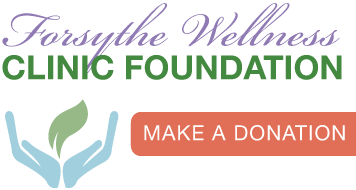When facing cancer, patients often assume conventional chemotherapy and radiation are the only options—but integrative approaches like SOT therapy are redefining treatment possibilities. Unlike traditional protocols, SOT combines genomic-guided precision with low-dose chemotherapy and complementary therapies, addressing both the tumor and the body’s overall resilience. This approach emphasizes holistic recovery, reduced side effects, and personalized care—factors rarely highlighted in standard oncology discussions yet critical for long-term wellness and quality of life.
What is SOT Therapy?
SOT, or Sequential Orthogonal Therapy, is an integrative approach that combines low-dose, targeted chemotherapy with complementary therapies to support the body’s natural healing systems. Unlike standard chemotherapy, which often emphasizes aggressive tumor destruction, SOT carefully calibrates treatment intensity based on genomic testing, tumor sensitivity, and individual patient resilience. This method allows for reduced side effects while maintaining therapeutic effectiveness. SOT therapy also incorporates bio-oxidative infusions, nutritional guidance, and lifestyle support, addressing not just the cancer cells but the body’s overall balance. By focusing on both cellular and systemic recovery, SOT creates a framework for long-term wellness that traditional treatments seldom consider, offering patients a pathway to healing that is precise, personalized, and integrative.
Overview of Traditional Cancer Treatments
Traditional cancer treatments typically focus on aggressive strategies such as high-dose chemotherapy, radiation, and surgery to directly target and eliminate cancer cells. These approaches prioritize tumor reduction, often without considering the broader systemic impact on the patient’s body. While effective at shrinking tumors, conventional treatments can disrupt hormone balance, immune function, and overall cellular health. Side effects like fatigue, nausea, and tissue damage are common, sometimes requiring additional interventions. Standard chemotherapy is generally administered in fixed cycles, with limited personalization beyond tumor type or stage. Though life-saving for many, traditional treatments rarely integrate holistic support systems, leaving opportunities for recovery optimization and long-term wellness largely unexplored.
Key Differences Between SOT and Traditional Treatments
SOT (Synergistic Oncology Therapy) and traditional cancer treatments differ in both approach and impact. While conventional therapy often targets tumors aggressively with high-dose chemotherapy or radiation, SOT emphasizes precision, using low-dose insulin potentiated chemotherapy guided by genomic testing. This allows for targeted cancer cell destruction while minimizing collateral damage to healthy tissue. SOT also integrates complementary therapies—such as bio-oxidative infusions, homeopathic support, and lifestyle coaching—to enhance recovery and reduce side effects. Unlike standard treatments, SOT prioritizes individualized care, focusing on both tumor response and overall patient wellness. This integrative, patient-centered approach often leads to improved energy levels, reduced inflammation, and better long-term quality of life.
Benefits of SOT Therapy
SOT therapy offers a distinctive approach to cancer care, combining precision science with holistic support. Unlike traditional treatments, it addresses not only the tumor itself but the overall well-being of the patient. Key benefits include:
- Precision Targeting of Cancer Cells: SOT therapy uses genomic-guided testing to identify how a patient’s specific tumor responds to various drugs. This means treatments are highly personalized, targeting cancer cells effectively while sparing healthy tissue—a nuance often overlooked in traditional approaches.
- Reduced Side Effects: Low-dose insulin potentiated chemotherapy amplifies the cancer-fighting effect of drugs without the high toxicity typical of conventional chemotherapy. Patients often report less fatigue, nausea, and hair loss, allowing daily life to continue with fewer interruptions.
- Enhanced Recovery and Energy: Integrative therapies like bio-oxidative infusions, alkaline water therapy, and nutritional guidance reduce inflammation, optimize immune function, and restore energy levels faster than standard chemotherapy alone.
- Synergy with Complementary Treatments: SOT works in tandem with homeopathic remedies, stress management, and lifestyle coaching to support cellular repair, hormone balance, and mental well-being.
- Improved Long-Term Wellness: Personalized care and attention to physiological stress can lead to sustained benefits, including better sleep, hormone stabilization, and stronger immune resilience.
- Holistic Approach to Quality of Life: Monitoring emotional, nutritional, and metabolic health fosters patient empowerment and engagement in the healing process.
- Fewer Hospitalizations and Interventions: Lower toxicity and integrative support often reduce the need for hospital visits or additional interventions.
- Potential for Long-Term Survival Benefits: Early implementation alongside traditional modalities may improve overall survival rates for certain cancers.
- Patient-Centered Decision Making: Transparency in treatment responses allows patients to make informed choices that reflect personal priorities.
- Integration of Cutting-Edge Science and Traditional Wisdom: SOT blends genomic science, low-dose chemotherapy, and integrative therapies, creating outcomes that honor both innovation and holistic principles.
By focusing on both effective tumor targeting and overall patient wellness, SOT therapy offers a comprehensive approach that can transform the cancer recovery experience.
Who Might Benefit Most from SOT Therapy
SOT therapy is particularly suited for patients seeking a highly personalized approach that balances efficacy with quality of life. Individuals with tumors that show unpredictable responses to standard chemotherapy may benefit from genomic-guided treatment selection. Patients who have experienced severe side effects from conventional therapy often find low-dose insulin potentiated chemotherapy gentler and more tolerable. Those interested in integrative care—combining nutrition, bio-oxidative infusions, stress management, and holistic support—may experience enhanced recovery and overall wellness. Additionally, patients motivated to actively participate in their treatment plan, make informed decisions, and optimize long-term health outcomes can gain the most from this approach, which addresses both tumor biology and whole-body resilience.
SOT Therapy Recovery Experience
Recovery with SOT therapy often differs from traditional treatments in subtle but meaningful ways. Many patients report faster restoration of energy and reduced fatigue, as low-dose, targeted therapies minimize collateral damage to healthy cells. Immune function tends to remain more stable, supporting the body’s natural healing processes. Emotional well-being can also improve, as patients experience fewer severe side effects that typically accompany conventional chemotherapy. This gentler approach allows individuals to maintain daily routines and quality of life while actively engaging in their cancer recovery journey.
Conclusion
SOT therapy offers a unique approach to cancer care, combining targeted low-dose chemotherapy with integrative strategies that support the whole body. By focusing on personalized treatment, reduced side effects, and improved recovery, it provides patients with an alternative path to traditional cancer therapies. For those seeking a thoughtful, patient-centered approach that addresses both tumor biology and overall wellness, SOT therapy may offer meaningful benefits. To learn more about whether SOT therapy is right for you, visit us online or call (877) 789-0707 to schedule an appointment with our integrative oncology team.






